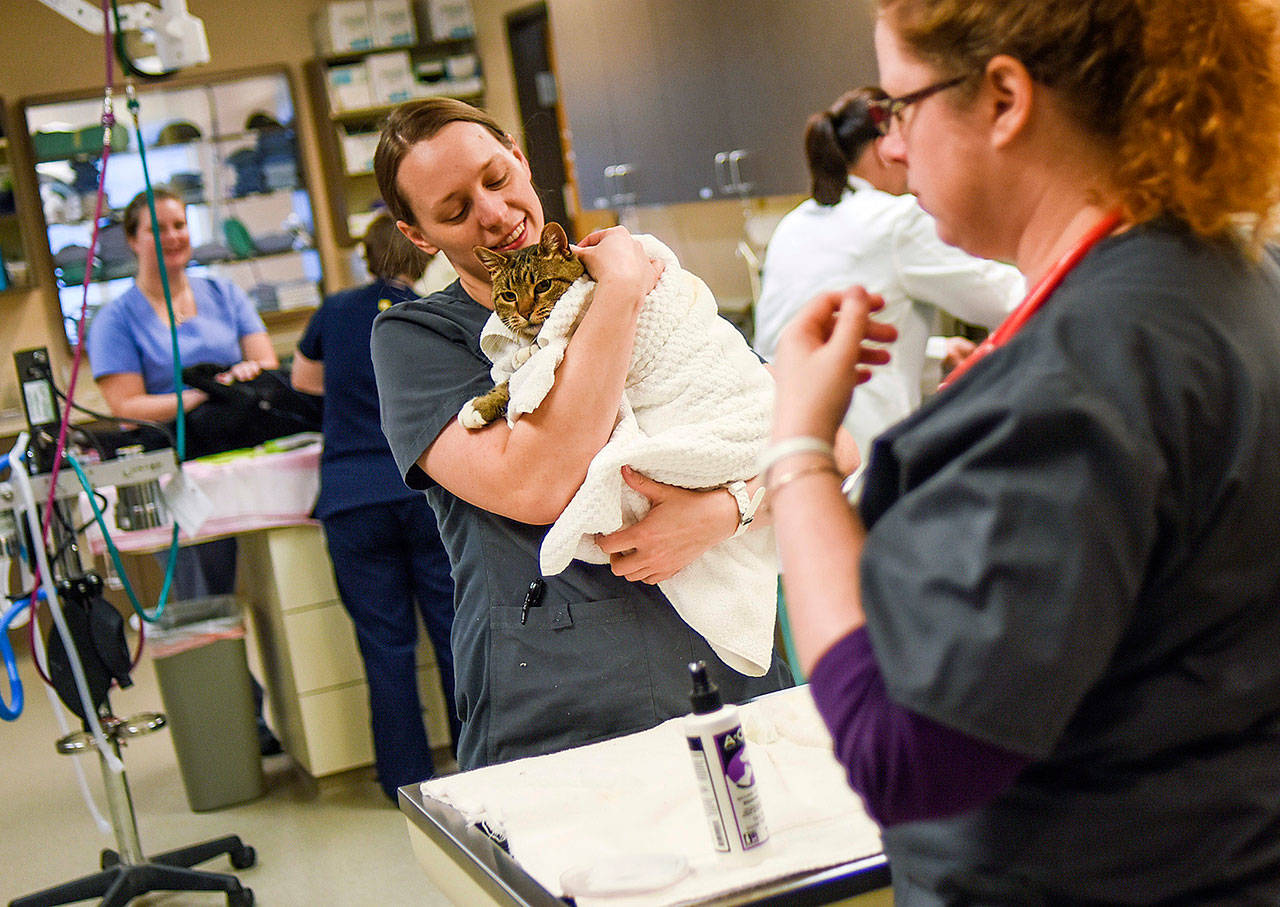By The Herald Editorial Board
If there’s an issue that rivals health care in terms of balancing cost and quality of life, many families, especially seniors, might argue that veterinary care for their pets is just as much a concern.
Most pet owners can only hope to avoid a trip to the vet for anything more serious — and costly — than regular checkups, vaccinations and spay and neuter services.
Anything more grave quickly mounts in cost. Cancer treatments, including radiation and chemotherapy, can cost more than $2,000. Dogs and cats can both suffer from degenerative joint diseases that can cost more than $3,000 to treat. Even swallowing a foreign object — if it doesn’t pass on its own — can cost more than $1,700 to remove surgically, according to a 2016 review of veterinary costs by CBS’s MoneyWatch.
Americans own more pets than they have in previous decades and are paying more for their veterinary case. There were 179 million dogs and cats in the U.S., as of 2014, an increase from 98 million since 1980. In 2015, Americans spent $35 billion on vet care, compared to just under $5 billion in 1991, according to Bloomberg.
And those are bills that many low-income seniors and families often find difficult to pay. It’s left some pet owners with heart-breaking choices, said Stacey Graham, president of the Humane Society for Southwest Washington, based in Vancouver.
Graham, speaking before a Senate committee in the Legislature earlier this month, said her shelter is seeing an increase in families who, because they can’t afford veterinary care, are surrendering their pets. A two-month survey of the approximately 20 pets a week that are surrendered to the shelter, found that 70 percent of owners were doing so because they couldn’t afford veterinary care.
Graham was among those speaking in support of legislation that would allow licensed veterinary staff at animal control agencies and nonprofit shelters to expand the veterinary services that currently are allowed by the state and offer them to low-income families and seniors at reduced cost. The bill, Senate Bill 6196, would allow nonprofit shelters to offer broader veterinary services to households with incomes that are 80 percent of the median family income for the county where the shelter is located.
Currently, animal control agencies and shelters are allowed to offer spay and neuter services, vaccination and implant of electronic identification chips.
The dilemma that low-income families often face is clear, especially where pet owners have to choose among surrendering their pets to a shelter, choosing to euthanize them or, worse, allowing beloved pets to continue to suffer.
Even understanding that need, however, the legislation may be premature, as it was drafted without input from the Washington State Veterinary Association.
Greg Hannon, with the veterinary association, also spoke at the Senate hearing, and asked that action on the legislation be suspended while the association works with the Humane Society and other shelters on the issue.
The groups have worked before on legislation regarding the treatment of pets and animals, Hannon said, including changes to the state’s animal cruelty laws, following the 1992 killing of a donkey, Pasado, in 1992 at a Seattle-area animal farm by three juveniles. More recently the groups have worked together on dangerous dog legislation, regulations regarding the tethering of dogs and the current law that allows the shelters to offer spay and neuter, vaccination and ID chip services.
One concern for the veterinary association, Hannon said, is what provisions shelters will be able to make to determine whether someone seeking care qualifies as low-income, although Graham said shelters already do such means-testing for the limited veterinary services they offer.
Veterinarians do offer reduced or uncompensated care to their clients, Hannon said, and want to continue to maintain their relationships with families and their pets.
Vets’ and shelters’ past record of communication and collaboration — and the need to protect a good working relationship between vets and shelters — is good reason to wait on the legislation and allow those groups to work on programs that would allow low-income seniors and families to get the care the need for their pets.
Talk to us
> Give us your news tips.
> Send us a letter to the editor.
> More Herald contact information.

























